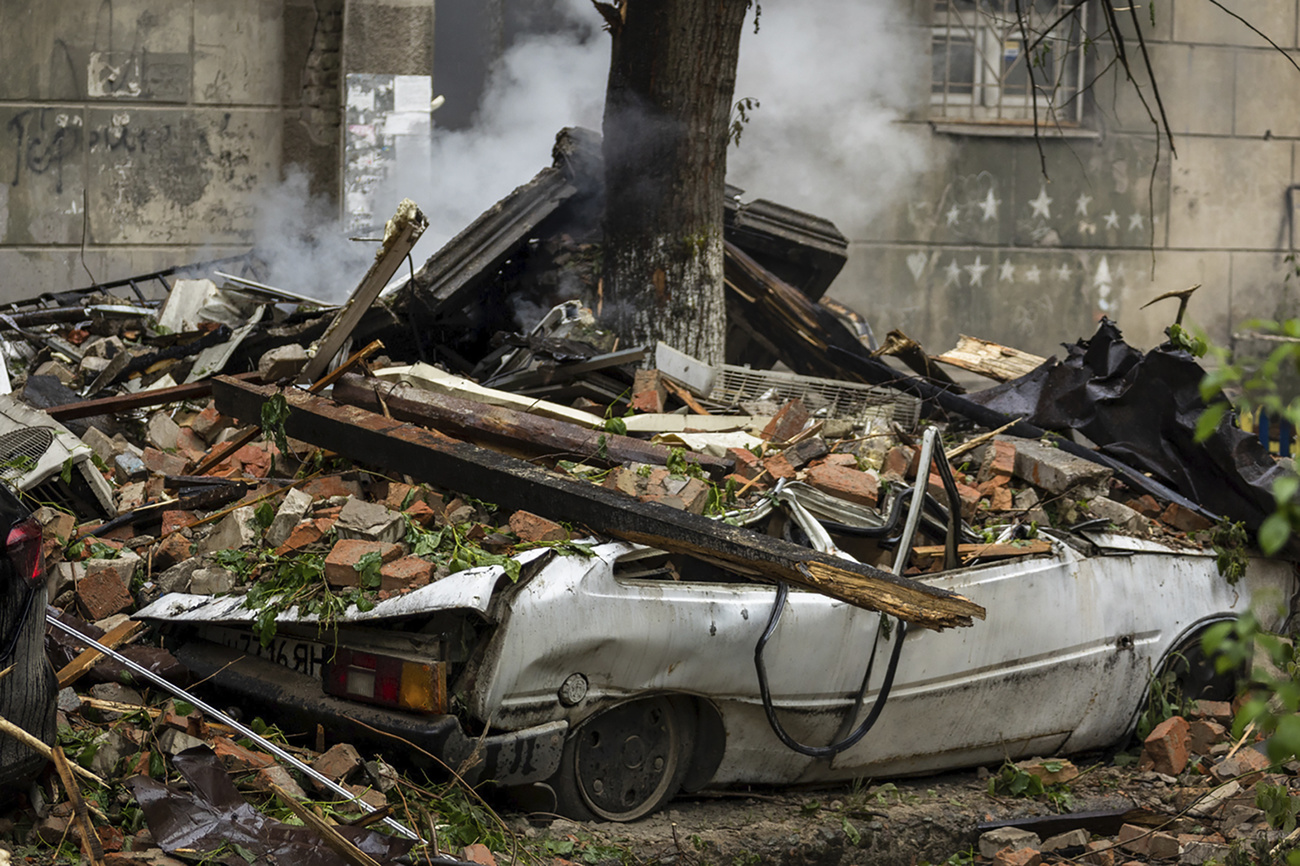
Switzerland and frozen Russian assets: where do things stand?

Russia’s continued assault on Ukraine has inflicted a terrible human and financial toll. Many nations, including Switzerland, responded to the invasion by freezing billions of dollars of Russian assets. Talk has now turned to permanently seizing assets and using them for Ukraine’s defence and eventual reconstruction.
As the world’s largest offshore wealth manager, Switzerland has come under the spotlight. Where does the Alpine state stand in the Russian asset debate?
What is the value of frozen assets in Switzerland?
On April 23, Switzerland said it had frozen CHF5.8 billion ($6.3 billion) of assets belonging to sanctioned Russian oligarchs and entities at the end of last year.
This figure is CHF1.7 billion lower than that reported at the end of 2022. The State Secretariat for Economic Affairs (SECO) said the decrease was mainly explained by the devaluation of assets as markets tumbled during 2023.
Could frozen Russian assets be used to rebuild Ukraine?
During the course of last year Switzerland added an extra CHF580 million to the frozen asset list but released CHF140 million for legal reasons.
Two further properties were frozen last year, meaning the owners cannot sell or make money from them. This brings the total number of frozen properties in Switzerland to 17.
In addition, a number of vehicles, works of art and other luxury items were blocked by the authorities.
Some CHF7.24 billion of assets from the Russian central bank have also been frozen in Switzerland.
How does this compare internationally?
The exact value of frozen Russian assets held around the world is hard to judge with precision as some countries only report ad hoc. The value of these assets is also subject to change depending on market conditions.
The European Council states that €21.5 billion (CHF20.9 billion) of sanctioned oligarch and entity assets has been frozen by European Union member states.
On February 12, the same body said €260 billion of Russian central bank reserves had been frozen worldwideExternal link, more than two-thirds in the EU. Most of this amount, around €190 billion, is held at the global clearing and settlement firm Euroclear, based in Belgium.
The Office of Financial Sanctions Implementation in Britain said in DecemberExternal link that £22.7 billion (CHF25.6 billion) of assets “in relation to the Russian regime” have so far been frozen by the UK.
What will be done with Russian assets?
Calls to use Russian assets, or at least the interest earned by these assets, to pay for the damage inflicted on Ukraine have been growing louder.
European Commission president Ursula von der Leyen has expressed her support for a such a plan, which also has support from the United States and Canada.
But there has been some opposition from France, Germany and Hungary, as the measures may result in serious legal repercussions.
The parliament of neutral Switzerland has also been debating the proposal to permanently seize Russian assets to pay for war damage.
Both chambers have agreed that Switzerland should join the international moves to find a legal pathway to such reparations.
Legal experts have told SWI swissinfo.ch that while laws could be amended to make this possible, such a move could be challenged by a nationwide vote.
Swiss Foreign Minister Ignazio Cassis says there is presently no legal basis to permanently seize Russian assets.
“We have to act within the rules of law, otherwise we lose credibility when we condemn others for violations of the law,” he said last year.
Despite following EU sanctions against Russia, Switzerland would not be rushed into decisions on permanent seizure of assets, says SECO head of sanctions, Simon Plüss. “We would not simply adopt any EU decision. There would still be many open questions regarding the rule of law,” he told reporters when announcing updated figures on April 23.
Is Switzerland doing enough?
Switzerland remains under international pressure to do more to help Ukraine defeat Russia. But the government draws the line at surrendering the country’s rule of neutrality.
More
On several occasions the United States has accused Switzerland of not trying hard enough to seize Russian assets. At the start of the war, the Swiss Bankers Association estimated that Swiss banks held up to CHF200 billion in Russian assets.
“I think Switzerland is doing a lot,” says Simon Plüss. He reiterated that seizures could be enforced only against sanctioned Russians.
But Switzerland has repeatedly resisted calls to join the G7’s Russian Elites, Proxies, and Oligarchs (REPO) taskforce to hunt Russian money.
On April 17, the House of Representatives voted down a parliamentary proposal to formally join the international body that was set up in 2022.
However, Switzerland is organising and hosting an international conference in June aimed at finding a peaceful resolution to the Ukraine war.
Edited by Mark Livingston/ts

In compliance with the JTI standards
More: SWI swissinfo.ch certified by the Journalism Trust Initiative






























You can find an overview of ongoing debates with our journalists here . Please join us!
If you want to start a conversation about a topic raised in this article or want to report factual errors, email us at english@swissinfo.ch.